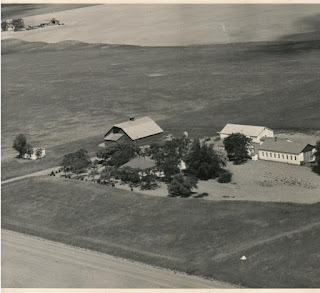The Veteran’s Invisible Wounds
Where we live, if you’re carrying your belongings in garbage sacks, it sends the message that you’ve either just gotten out of jail or a treatment center.
He politely showed the driver his ID and handed him the voucher that state agencies give in lieu of cash. He carried his two bags all the way to the back of the bus. I was a couple seats in front of him. A man behind me nodded to the young man as he placed his bags down.
“Where are you heading?” the older man asked.
“Seattle, but not for long. I hope to go somewhere else.” The young man seemed distant, not inviting conversation.
But the older man persisted— “Do you have family there?”
“No.”
The older man asked, “Do have work lined up?”
“No. I’ll find something.”
“What kind of work do you like?” the older man asked.
“I’ll do anything for now.” The young man’s answer would have been a perfect place to nod and allow the rumble of the bus engine to cover the silence. But the older man seemed intent on connecting with a young man heading to Seattle without a plan.
I listened as they talked about the young man’s military service in Afghanistan. He’d returned home, but not fully. It seemed there were parts of his life left back in that embattled nation. He couldn’t find a place to start his life here. He’d used a variety of street drugs to escape his war-time nightmares, but now he was clean.
This is the reality for some of our nation’s veterans. Some come back with invisible wounds to their minds. Brain trauma, PTSD, depression. The statistics bear this out. Since our nation went on the offensive after 9/11, we’ve lost 7,057 military personnel in conflict. But even more sobering, is that we’ve lost over 30,000 veterans to suicide. According to the Department of Veteran Affairs, seventeen vets commit suicide each day.
The mental health services offered our nation’s veterans aren’t as timely as needed. Waiting a couple months for an appointment and then talking to someone who hasn’t experienced the same mental anguish isn’t helpful.
But as a young veteran talked, an older man on a bus listened. Two hours later I noticed the older man emptying his backpack.
“Here, take this. I have another one at home.” The man gently handed over his backpack.
A slight smile came to a young man’s face. He placed his garbage-bagged belongings in the gifted backpack. He might be heading out into the big city, but he didn’t look as hopeless.
America, we should honor those who have served us. We should make sure all our veterans get the care they need. I was humbled by what I heard and saw—all it took was a willingness to care. God bless our veterans and their future here back home.




